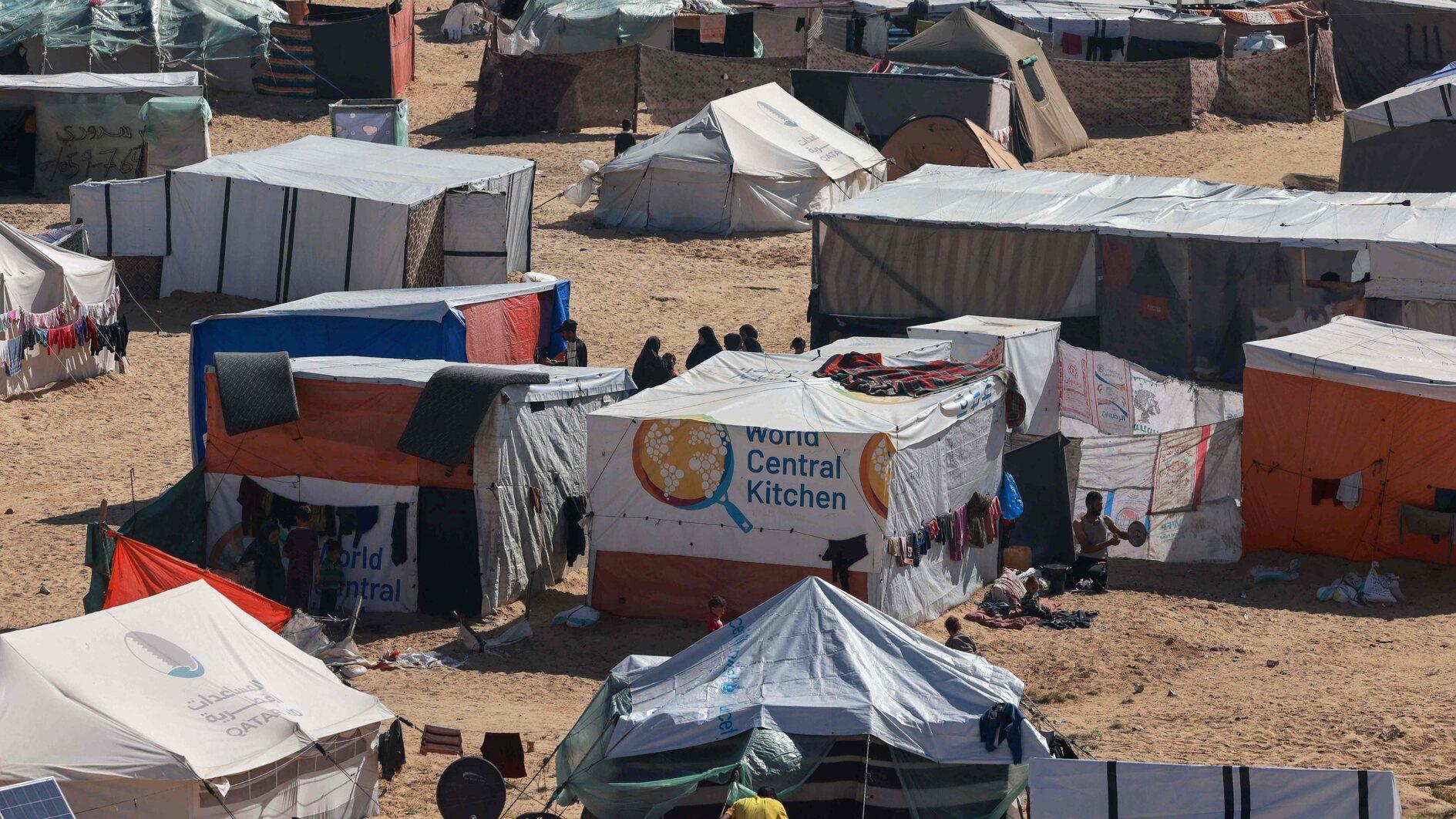Bloody déjà vu in Jerusalem
The de-Palestinianization of Jerusalem has been a long-term policy of Israel that effectively started with the annexation of East Jerusalem in 1980 in violation of international law. Since then, Israel has intensified this policy by expelling Palestinians from their homes and permitting the construction of Jewish settlements on Palestinian lands.
As the Turkish Foreign Ministry pointed out in its two last statements, there’s no doubt Israel bears the primary responsibility for the recent escalation in Jerusalem, which has resulted in at least two dozen dead and scores of injured. Plus, the footage from Jerusalem showing Israelis chanting and partying as a fire rose from the Al-Aqsa Mosque with Palestinians inside was enough to push anybody with a certain level of humanitarian feeling to question how a human could commit such cruelty to another human.
Israeli Prime Minister Benjamin Netanyahu, who has dragged his country into deep political instability over the last few years, has certainly played a special role in all these atrocities against the Palestinians.
He, however, is not alone.
The United States – previous and current administrations alike – has also contributed to the escalation in Jerusalem. Former President Donald Trump’s irresponsible decision to move the embassy to Jerusalem after recognizing the city as Israel’s capital in 2018 and incumbent Joe Biden’s continuation of this policy have further encouraged Netanyahu and like-minded Israeli politicians to expel Palestinians from the city altogether.
The Biden administration and some other Western countries did not even condemn the killing of Palestinian civilians while worshipping inside Al-Aqsa during Ramadan. This steady support for Israel’s atrocities has consequences beyond human losses: It has killed the possibility of a negotiated solution to one of the world’s most complex problems, the non-resolution of which has devastating effects in different parts of the world.
Once an active member of the so-called Quartet for a two-state solution, the United States today is pursuing a policy that envisages the establishment of an independent Palestinian state in rhetoric only.
Equally, an important part of the responsibility lies with some Arab nations who rushed to establish normal ties with Israel in recent years at the expense of ignoring the difficulties millions of Palestinians were suffering. This policy reinforces suggestions that the Arab states are sacrificing the Palestinian cause for their relations with the United States.
From the perspective of Turkey, which has long been one of the loudest nations when it comes to the rights of Palestinians, Israeli security forces’ indiscriminate and unproportioned use of force against civilians are not acceptable. Reaction against Israel was not limited to the government, as all political parties and civil society also joined the condemnation of the killings of civilian Palestinians.
The Israeli move also coincided with the joint efforts for a reconciliation in ties between the two nations.
The diplomatic representation between Israel and Turkey was reduced to the level of chargé d’affaires in 2018 in response to Israel’s killing of at least 60 Palestinians protesting the U.S. decision to recognize Jerusalem as the Israeli capital.
It goes without saying that the climate for a return to normalcy has been broken due to Israel’s actions against the Palestinians.











